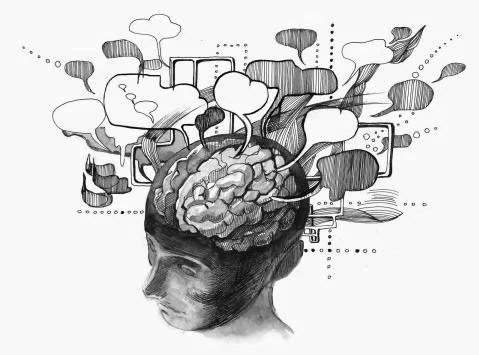The Ghost Writers of Our Internal Experience
Key points:
Our brains run largely on subconscious implicit memory, which are a type of mental programming that constantly compare our present experience to mental representations of the past
When they are adaptive, these implicit memories, or software packages, are a big time and energy saver; they provide a context and frame of reference to understand our current experience, so that we can respond efficiently, without having to consciously problem solve our way through everything
When they are born out of attachment inadequacies, overwhelming experiences, or trauma, these software packages are maladaptive, rigid and inflexible, often turning the present into versions of the past
Implicit memory governs much of our behaviour. Such memories are like unconscious mental software packages - they quickly compare present events to past experiences, make assessments and predictions about the current situation, and initiate the appropriate reaction.
Implicit memories serve two major functions
They provide a framework against which we can evaluate and respond to our current situation
They allow for automation, enabling us to react reflexively, with relatively little conscious attention, freeing up our minds for other things.
For the most part, this is very adaptive - when you get into your car, for instance, rather than having to consciously think about what to do, you access the “car operations” software package, which comes equipped with a variety of automated motor sequences (foot movements of acceleration and breaking, hand movements of steering, eye movements of scanning and checking mirrors) and mental evaluations (optimal speed based on road conditions, traffic, lateness-to-chance-of-getting-a-speeding-ticket ratio).
By their nature, implicit memories have the quality of being generalizations - they are the rule to which we must apply exceptions as needed.
Adaptive software packages are modifiable - they are connected to the network as a whole, rather than operating in isolation, and are constantly receiving updates based as new information becomes available. If you go to England, the driving-on-the-right-side-of-the-road section of your “car operations” software package will be updated to reflect the new situation.
However, our brains are inherently conservative, particularly when it comes to things that have been coded as “dangerous.” Software packages born out of attachment disruptions, overwhelming emotional experiences and trauma are often rigid and fixed. Rather than being open to new information, they have the quality of “read-only” files. And while this has a survival advantage - better to mistake a stick for a snake than a snake for a stick - it limits our ability to learn, make new meaning and respond flexibly to the here and now.
And this is where automation has a down side. Since the point of implicit memory is to make the conscious unconscious, they operate without our knowledge. Implicit memories show up as patterned responses and physical or emotional states that are not accompanied by an internal sense that something from the past is being remembered. Thus, rather than recognizing them for what they are - remnants of the past - we interpret them at face value. And in so doing, we relive the past in the present.
When our internal experience is unconsciously curated by outdated implicit memories, we constantly interpret the present through the filter of our unresolved past.
In order to reclaim the present, we need to resolve the past. By reprocessing the implicit memories that are operating under the surface, we open the door for a future than is informed by the past, rather than dictated by it.







